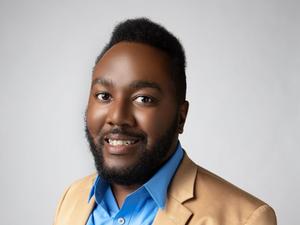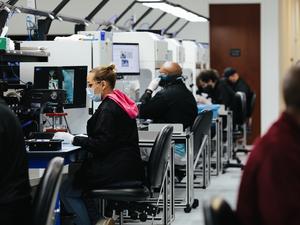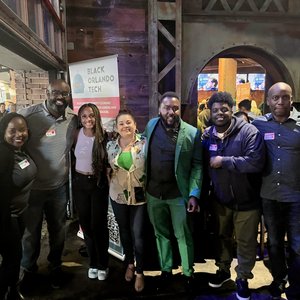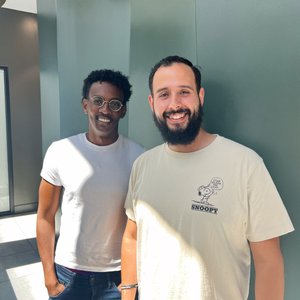When a ransomware attack on workforce management firm Kronos in December 2021 disrupted timekeeping and payroll systems for several firms across the U.S., Orlando Health’s tech team sprang into action. Orlando Health, one of the affected companies, was less than two weeks from the next pay period. Instead of using Kronos timekeeping software, the Orlando-based health care system’s workers filled out time cards by hand. Meanwhile, its information technology team built an app that used the hand-recorded time card data to run payroll correctly.
This was done in a matter of days, Orlando Health Chief Digital and Information Officer Novlet Mattis told Orlando Business Journal. “IT was so pivotal to putting in solutions right away on the fly, and developed the capabilities and an app to allow us to collect time, reconcile it and run payroll for 20,000 team members.”
This is just one example of the crucial role tech talent plays for Orlando Health and other major Central Florida employers across various industries. Whether or not theme parks, hospitals and other anchors of Orlando’s economy are thought of as “technology companies,” they employ thousands of technical workers and utilize their skillsets.
However, the U.S. faces a tight and competitive labor market, especially for technologists and engineers. Attracting and retaining more such talent, while growing the region’s innovative sectors of the economy, can help businesses stay ahead of the digital curve, diversify the region’s economy and generate more high-wage jobs.
In recent months, local groups have highlighted the need in the region for more high-tech, high-wage work in Orlando’s economy. For example, the Entrepreneurs Alliance of Orlando, a group of successful business owners vying to build investment-grade companies in town, on Jan. 20 released an 11-page report called “The Opportunity Orlando Call to Action." It details the need for more high-wage jobs in Central Florida, and the need for more successful entrepreneurs and tech firms to create those jobs.
Plus, the Orlando Economic Partnership has assembled a task force of startup founders and enterprise company executives to develop a five-year strategy to foster the growth of tech-focused companies in the region. A plan is expected to be in place in five to seven months.
In this special report, OBJ spoke with Orlando-area technologists and tech-focused executives who work in industries spanning health care, finance, tourism and more.
Read on to learn how a robust pipeline of tech workers and tech-focused firms plays a key role in their success.
Theme park giant's tech worker appetite is growing
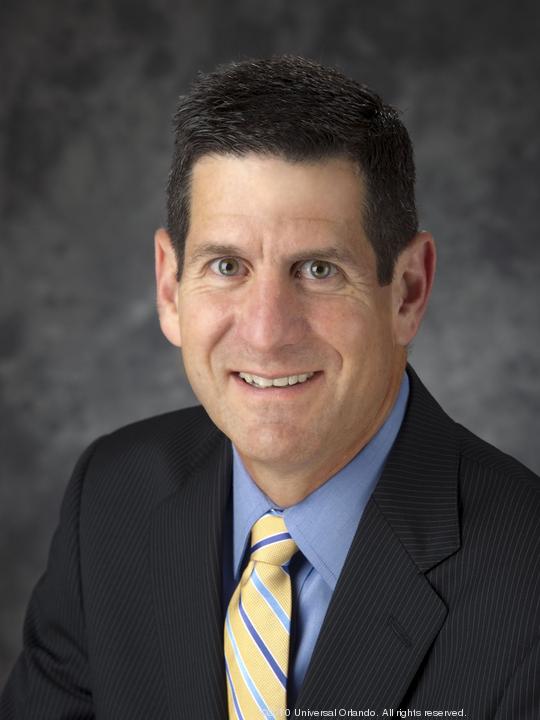
Visit Universal Orlando Resort, and you’ll see roller coasters, simulations and hotels. What you likely won’t see are the more than 300 tech-focused employees who keep Universal Orlando Resort, the region’s second-biggest employer, ticking. That number will grow, as Universal expects to employ 500 tech-focused workers by 2025, Universal Parks & Resorts Chief Information Officer Bill McCorey said. Here’s more from McCorey:
What are the most common types of technology positions your company employs in Central Florida? We run a full-scale technology business, so we employ all types of roles, from architects who design solutions to developers who build solutions, along with people who specialize in infrastructure, cyber, network, project management and support resources to keep the business running. I can’t think of many technology roles and skills that we don’t use or have a need for these days.
Have you noticed any significant changes in the Central Florida tech talent pool in the last decade? The technology talent pool is strong, but we need to keep more of it in Central Florida. We need to convince talent coming out of local schools to stay in their hometown, and that the work we are doing is as exciting as our attraction experiences.
Why did you feel it’s important to be part of the OEP's five-year technology plan task force? Orlando and Central Florida have a lot to offer technology talent. The work is fun, exciting and growing, and it will use the skilled talent our universities are producing. We have an opportunity to make Orlando and Central Florida a top 10 location for technology. The talent is strong and the opportunity is now.
Bill McCorey
- Titles: Senior vice president/global chief information officer, Universal Parks & Resorts
- Age: 63
- Hometown: South Charleston, West Virginia
- Education: West Virginia State
- Hobbies: Golf, horse racing, Corvettes and hanging out with my grandchildren. I am a retired marathoner and mountain climber.
Tech activist switches from entrepreneur to 'intrapreneur'
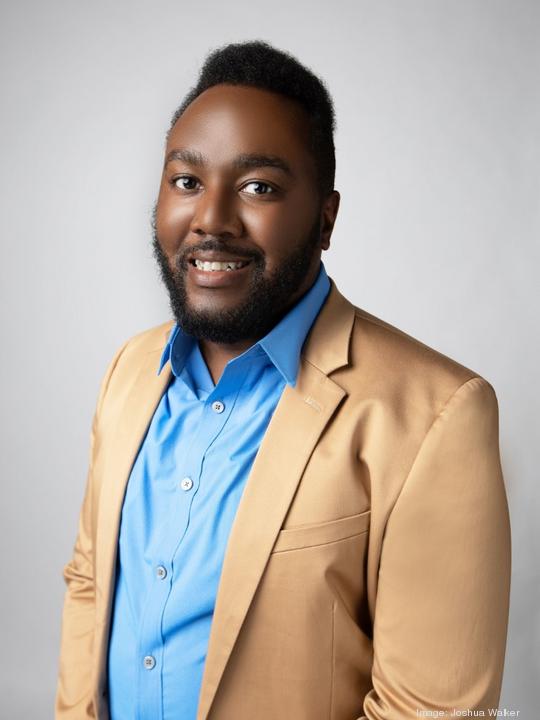
Joshua Walker found early success as an entrepreneur, but he soon learned that starting a business isn’t for everyone. Walker and his wife ran a digital consultancy from 2016-2017, and the business was successful in landing projects. However, Walker changed directions in 2017, joining global consulting giant Deloitte, which employs nearly 1,400 in Central Florida. Walker’s shift not only led to a more rewarding career; it also provided him with experiences that help his work as co-chair of Black Orlando Tech. The 6-year-old Orlando-based nonprofit was founded with the mission of inspiring 10,000 minorities in Central Florida to enter the technology field by 2025. Here’s more from Walker:
What sparked your interest in working for a big enterprise company? A path that gets overlooked is being an intrapreneur. When you become a director, you’re essentially a business owner under the consultancy company you're in. I saw that. I’ve made a big name for being super technical, but able to translate that into regular speech.
What effects have your experiences in an enterprise tech role had on how you and the Black Orlando Tech leadership approach the mission? Most big tech and consulting firms don’t do generalists. Everyone specifies. When we started Black Orlando Tech, we knew we needed specialists in Salesforce, data, etc. Our board was stacked based on the skillsets that would serve the community the best. How I deal with people has a huge impact from my job. My relationship building went to another level on behalf of Black Orlando Tech because of being in different places in different parts of the country and different parts of the world.
What changes or progress have you seen in the Orlando tech ecosystem? When I first got into the Orlando tech scene six or seven years ago, we were heading in the right direction, but then we went off course and had to find ourselves a bit. In the last few years, Orlando finally is being recognized. You have talent, but you don’t have the ego in New York or the West Coast. In Orlando, the tech scene is very accepting.
What are Orlando’s challenges? The only thing I’m worried about is, just because we live in Florida doesn’t mean you should pay us less. I see in the startup community or other companies, they feel the pay can be less because our cost of living is less.
Joshua Walker
- Titles: Cloud solutions architect, Deloitte; co-chair and founder, Black Orlando Tech
- Age: 33
- Hometown: Orlando
- Education: Full Sail University
- Hobbies: Creating tech content, making music for film and TV, going to concerts
Exec to help lead Orlando's air taxi plans
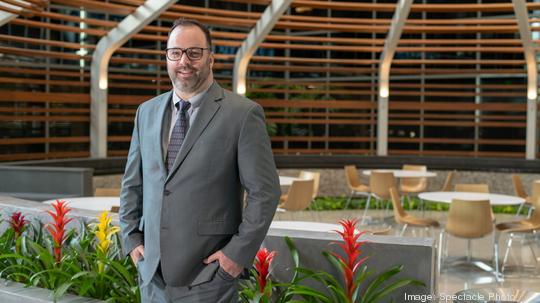
When Vanasse Hangen Brustlin Inc. decided to name its first-ever chief technology officer, the engineering and planning firm looked to Orlando. The Watertown, Massachusetts-based firm — better known as VHB — in October named Orlando-based Senior Vice President Dave Mulholland its CTO. Mulholland will play a key role in VHB’s work on innovative projects it’s working on with the city of Orlando, including the Future-Ready City Master Plan and the Advanced Air Mobility Transportation Plan to embrace electric vertical takeoff and landing vehicles, sometimes called air taxis. In addition, VHB is involved in a number of tech-based initiatives, including its Smart Communities program, model-based design and the use of digital twin. Here’s more from Mulholland:
Why did VHB create a chief technology officer position? Everything started with the pandemic and some of its challenges, and we realized that as part of our next strategic plan, we needed to be very succinct and focused on driving technology into the business. How do you take a firm that's got this legacy in engineering, and say, "We're now going to really elevate what we do in the technology space." Based on my background and being really passionate in technology, the corporate leadership asked me to take on this role and really help elevate what we do in the technology space — and the data and innovation side.
What made VHB keep this role based in Orlando while its corporate headquarters is in another state?
The strength I’ve brought actually is because of the strength of the region in which we operate. I’m a product of the region. The Central Florida community probably is one of the most advanced in the entire country in terms of the commitment toward driving innovation. In fact, the CTO position is the first corporate leadership role outside of our headquarters.
What advice would you give others trying to beef up the roles tech and innovation play in their companies? Define what innovation and technology means to you and your organization early in the process. Then define what the innovation is, and the time and change it takes to do this. You have to manage the expectations on it, in some cases. Third, and probably the most important thing, I see that a lot of technology firms go too wide too fast. Be laser-focused.
Dave Mulholland
- Title: Chief technology officer, VHB
- Age: 51
- Hometown: Orlando
- Education: University of Central Florida
- Hobbies: Fishing, particularly deep-sea fishing
A hospital system that 'rides on technology'
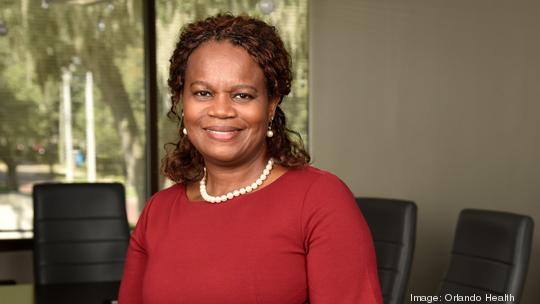
At any given time, Novlet Mattis may have as much as 2.7% of metro Orlando’s technology talent pool working for her at Orlando Health. That’s because Orlando Health employs 700 information technology and clinical engineering staff members, with anywhere from 150-500 contractors coming on for certain projects. For context, CBRE Group Inc. (NYSE: CBRE) estimated metro Orlando’s technology talent pool consists of 43,340 people. Of course, it’s no small task powering the technology behind a health care system with 16 hospitals and emergency departments. Here’s more from Mattis:
How do IT capabilities factor into a patient’s treatment? As a patient, when you pick up the phone or walk into a hospital, it’s the technology we support in IT. You will get registered in a system, scheduled for the appointment — that is via an information technology capability. When you come in for your visit, they register you, they take your information, they get your credit card information or your payment information. All of that is done on technology. When you go and see a physician in a doctor’s office, or you go for surgery, you hear people complain that the doctor is always on the computer versus looking at me. Every part of your treatment and care in terms of the medical assistant getting your history on your physical, taking your weight, all of that is documented in the electronic medical record.
In general, how has Orlando Health fared in recruiting IT positions? Recruiting IT people over the last four years that I've been here actually has been pretty good, because we were implementing a major, world-class electronic medical record. We have a lot of people, even people who already were internal to the company working as nurses, they really wanted to be in IT because it was pretty sexy, right? We were having people knocking on our doors to be part of IT.
Are there any technical positions that are difficult to recruit? We have to compete nationally for cybersecurity professionals. Data and analytics is another area we have to keep an eye on, because, again, we are competing not just locally but nationally. Some of the things we have done to recruit, hire and retain some of these team members — and Covid helped with this to a certain extent — is the fact that some of our non-leader team members can work in a hybrid way.
Novlet Mattis
- Title: Chief digital and information officer, Orlando Health
- Hometown: Originally from Jamaica, lives in Longwood
- Education: Bachelor’s in management information systems, Howard University; MBA, George Washington University
- Hobbies: Traveling, spending time with grandchildren
As upstart bank took off, it built IT team from scratch
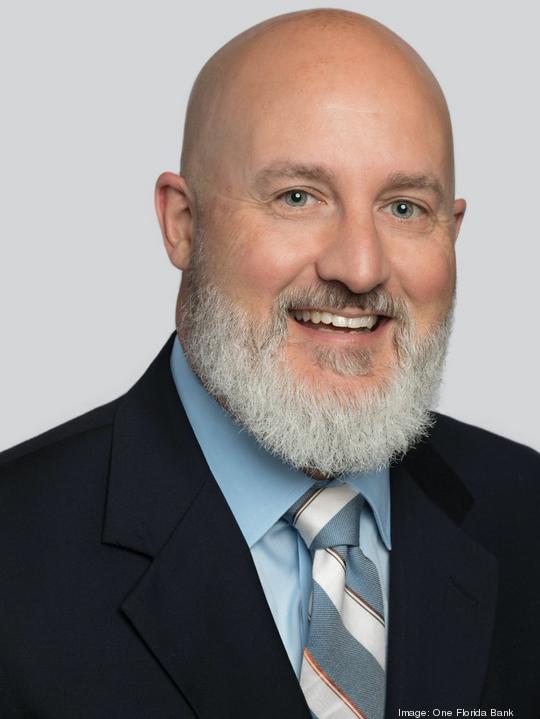
Orlando-based One Florida Bank was born after its board purchased a small bank in 2019 — and it started out with no IT staff.
Over the course of two years, CFO and COO Eric Nadeau oversaw the hiring of four tech workers. It’s a small team, but the impact was significant during a two-year timeframe when One Florida Bank exploded from 11 employees to 140, and from $50 million in assets to $1.5 billion in assets. Improving the company’s IT operations were essential, as the fast-growing firm’s needs evolved similarly to going from hauling a bicycle to a 28-foot boat, Nadeau said. Here’s more from Nadeau:
In addition to the hires, how else has One Florida Bank improved IT support? We’re relying pretty significantly on a third-party firm [Jack Henry & Associates] to develop and customize products, and help us manage, monitor and maintain our network. We still have to make sure the third-party firm is doing what it stated it will do in those contracts. We’re still responsible for the security of our clients. We’re still responsible for that user experience and assurance that our products are always available, easy and fun to use. That bank [we acquired] did not have any of the products and services to provide to our commercial clients and consumers in Central Florida. The concept of mobile pay and online wires just wasn’t something they needed in that marketplace. I believe we’ve added about 20 products over this three-year period.
Has it been difficult to recruit IT talent? It’s been tough for all employers. We are a financial institution, which usually isn’t attractive to folks who want a job. It’s very attractive to IT folks who want to hack into the network. What’s been attractive to our candidates has been the culture, the ability to build something and knowing they really can make the bed they want.
In your time in Orlando, have you seen any changes in Central Florida’s economy as a place to recruit and develop technical talent and tech-focused companies? I wish I had been here in the ‘80s, just to have a feel for how much Orlando has changed over that half of a generation. There’s definitely a shift to change Orlando from just the house of the mouse.
Eric Nadeau
- Titles: CFO/COO, One Florida Bank
- Age: 51
- Hometown: Dover, Ohio
- Education: Miami University
- Hobbies: Classic car auctions
Sign up here for Orlando Business Journal's free morning and afternoon daily newsletters. And be sure to follow OBJ on LinkedIn, Facebook, Twitter and Instagram.
